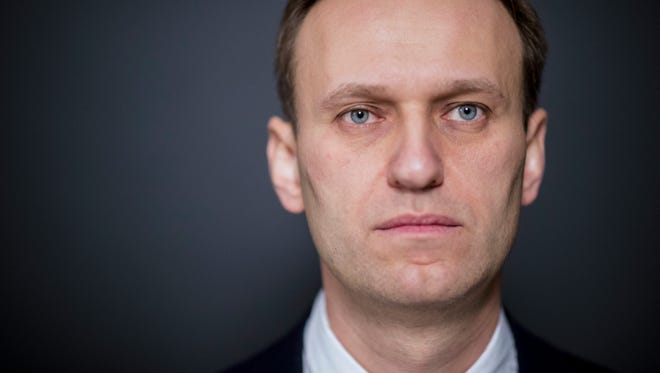Toxicology tests performed on samples taken from Russian opposition leader and anti-corruption campaigner Alexei Navalny showed “unequivocal proof” of the presence of the Soviet-era nerve agent Novichok, the German government said Wednesday.
Navalny is in an induced coma at Berlin’s Charite hospital.
He was transferred there last week after he fell ill on a flight back to Moscow from Siberia on Aug. 20 and was taken to a hospital in the Siberian city of Omsk after the plane made an emergency landing.
Navalny, 44, is one of Russian President Vladimir Putin’s fiercest critics.
His allies have insisted he was deliberately poisoned, likely by drinking tea, by Russian authorities. The Kremlin has rejected the allegations as “empty noise.”

The Russian doctors who treated Navalny in Siberia have repeatedly contested the German hospital’s conclusion, saying they had ruled out poisoning as a diagnosis and that their tests for poisonous substances came back negative.
Seibert said that the German government will inform its partners in the European Union and NATO about the test results and that there will be “an appropriate joint response.”
Charite hospital said Wednesday that Navalny’s symptoms are declining but his condition remains serious. Nerve agents block messages from the nerves to the muscles, leading to the collapse of many bodily functions.
Navalny is the effective face of political opposition to Putin and he has been in and out of jail for his activism against the longtime leader.
Last year, he claimed he was poisoned while serving a short jail sentence. Doctors said he had a severe allergic reaction to an unknown substance. He was left partially blind in one eye after a pro-Putin activist attacked him with a chemical in 2017.
Navalny is the effective face of political opposition to Putin and he has been in and out of jail for his activism against the longtime leader.
Last year, he claimed he was poisoned while serving a short jail sentence. Doctors said he had a severe allergic reaction to an unknown substance. He was left partially blind in one eye after a pro-Putin activist attacked him with a chemical in 2017.
Many of Putin’s opponents — journalists, politicians, former associates — have died in suspicious circumstances, and several have been poisoned.
